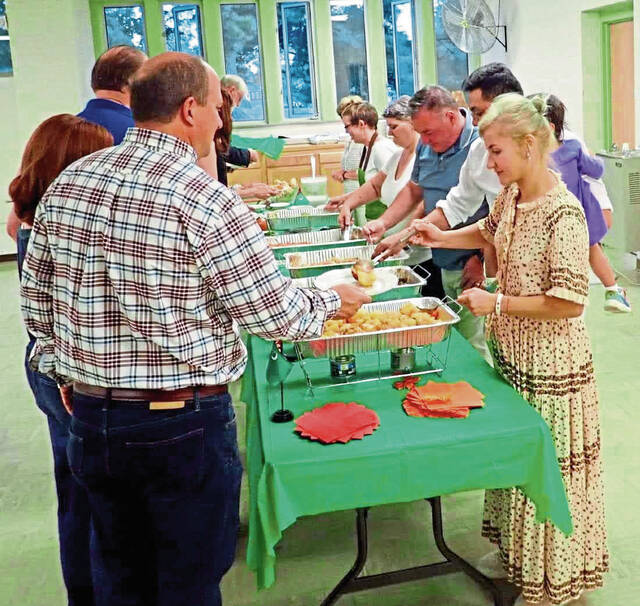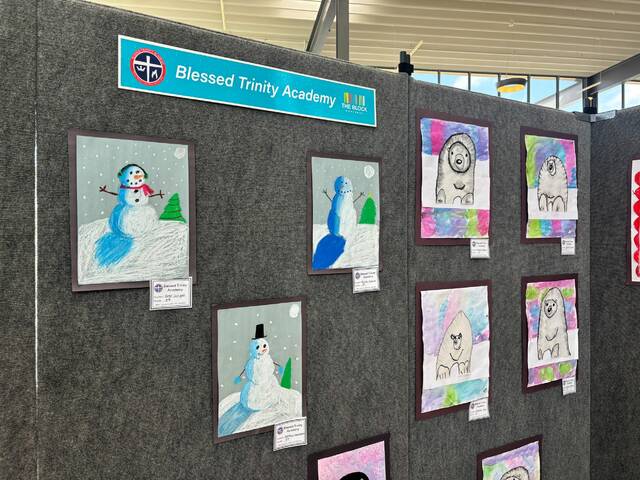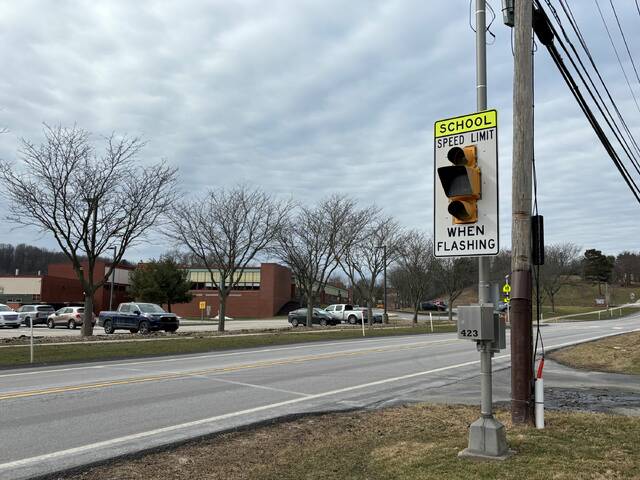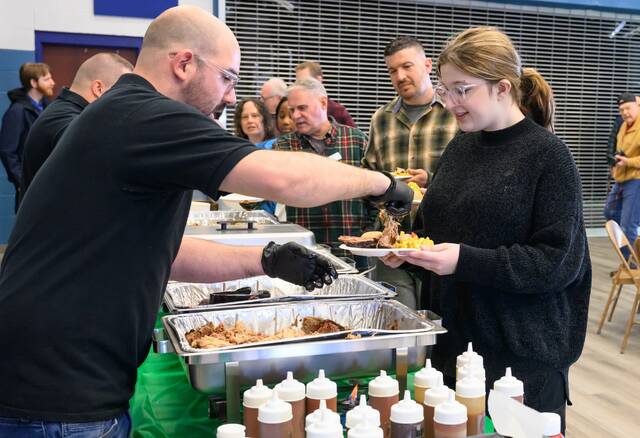THRIVE Pittsburgh helps refugees, immigrants and asylum-seekers coming into the United States by providing basic necessities and the support needed to begin again.
These individuals and families arrive in Pittsburgh with basically nothing after fleeing their home or country or after living years in a refugee camp, according to Pauline Spring, program director for THRIVE located at North Hills Community Baptist Church in Ross Township.
“They come with what they can carry. Some had to leave everything else behind,” she said.
THRIVE — an acronym for Together Helping Refugees and Immigrants Via E-crowdsourcing — is a nonprofit started in 2018.
Local resettlement agencies, such as AJAPO Refugee services in Pittsburgh, provide referrals of new refugees or asylum seekers coming to the United States. AJAPO, stands for Acculturation for Justice Access and Peace Outreach.
Before the family or individual even arrives, THRIVE creates an online sign-up “wish list” for basic everyday items, such as shower curtains, pots and pans, dishes, garbage cans, bedding and more. Donors can purchase the items and have them dropped off or delivered to the church. Gift cards can be donated to buy items.
The donations are used to set up a home or apartment, coordinated by AJAPO, for a family or person before they arrive.
Hess said each family member receives $1,225 from the federal government to be used for rent, a security deposit, furniture, household items, and other needs. However, donations from THRIVE can free up money to be used for other items, such as bus passes or winter clothing.
“We see real people here with the same needs and desires we have,” Spring said.
AJAPO services approximately 300 people across all of its programs.
Each fiscal year, it resettles roughly 100 newly arriving refugees, Special Immigrant Visa holders and asylum seekers, according to Hess, though the number can fluctuate based on presidential order.
The organization is approved this fiscal year to resettle up to 220 people from all over the world through its Reception and Placement Program. In addition, it will help resettle 150 Afghans through a special program called Afghan Placement and Assistance, Hess said.
Spring said asylum seekers usually are escaping intolerable conditions from their home country, which can be brought on by religious persecution, tribal conflicts or family strife. They may flee on foot. They may be refugees who have been living in refugee camps for up to 15 or 20 years and seek permanent residence, or they may seek to stay after a government-issued visa expires and apply for permanent residence.
“Most of these people have been through horrible things,” Hess said.
AJAPO services include medical, transportation, employment, school enrollment, child care, government IDs and other social services for up to five years after an individual’s or family’s arrival. Refugees must find a home, a job and school enrollment for any children within 90 days, according to requirements set by the federal government for all services that need to be provided, Hess said.
While people may need assistance at first, the goal of THRIVE and AJAPO is independence.
“We help people become productive members of society, send children to school, get education and pay bills on their own,” Hess said.
THRIVE offers programs to introduce new arrivals to the community. THRIVE provides space for immigrants to share their culture through food via a Supper Club. Families can sell tickets for these events and keep the ticket proceeds.
THRIVE creates welcome bags for children from infants to age 18 that contain age-appropriate items such as nightlights, children’s toothpaste and toothbrush, stuffed animals and blankets for the younger ones. Or snacks, hygiene items, small games and hair brushes or combs for the older children.
Divina Joseph’s children received welcome bags when they arrived in September. Originally from Congo, Joseph and his family fled because of a personal conflict and lived for eight years in a refugee camp in Kenya where they had to learn to communicate and live with people from than 20 nationalities, he said.
The resettlement process took four years due to refugee allowances in the United States and the pandemic.
With no relatives here, Joseph, 30, said the family was very pleased with the help it received. His children are excited to be in school, as at the camp there were about 100 students per classroom, he said.
His wife is working full-time. Joseph has a degree in public administration from Southern New Hampshire University through Global Education Movement with experience in research and office management. He also has a diploma in social work from Regis University through Jesuit Worldwide Learning.
He is working at a local Amazon site part time until he finds something in line with his skills, he said.
“We’re just happy. We waited for so long,” said Joseph, whose native language is French, but speaks fluent English. Coming from a warmer country where it rains about once a year, the family’s biggest challenge is getting used to the Pittsburgh weather.
AJAPO is a nonprofit funded by the U.S. Department of State through the Ethiopian Community Development Council, the Pennsylvania Office of Refugee Services, Allegheny County Department of Human Services, and other donors listed on ajapopittsburgh.org.
Other churches partnering with THRIVE include Memorial Park Church and St. Paul’s United Methodist Church, both in Allison Park; St. Brendan’s Episcopal Church in Franklin Park, and Unitarian Universalist Church of the North Hills on West Ingomar Road, Spring said.
For those wanting to donate items, thrivepittsburgh.org maintains wish lists. Monetary donations also can be given through ajapopittsburgh.org.













